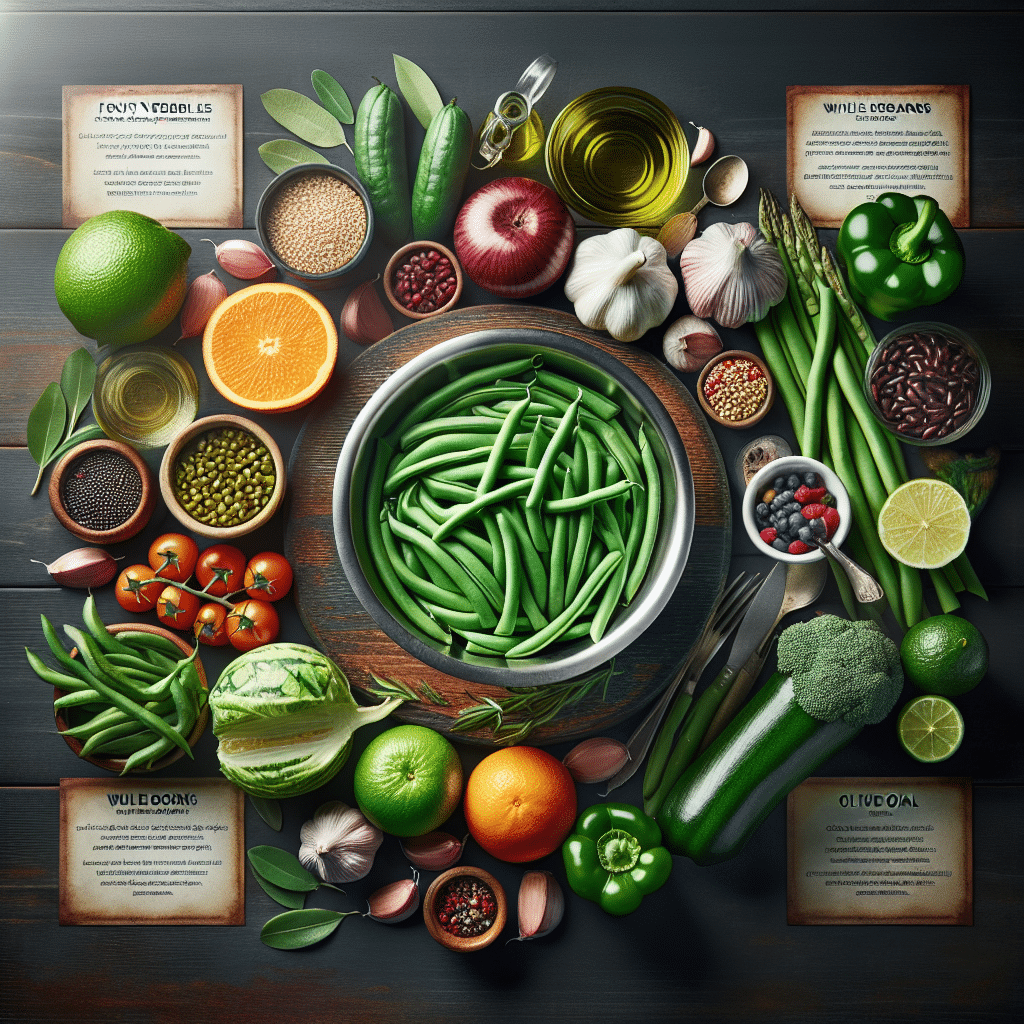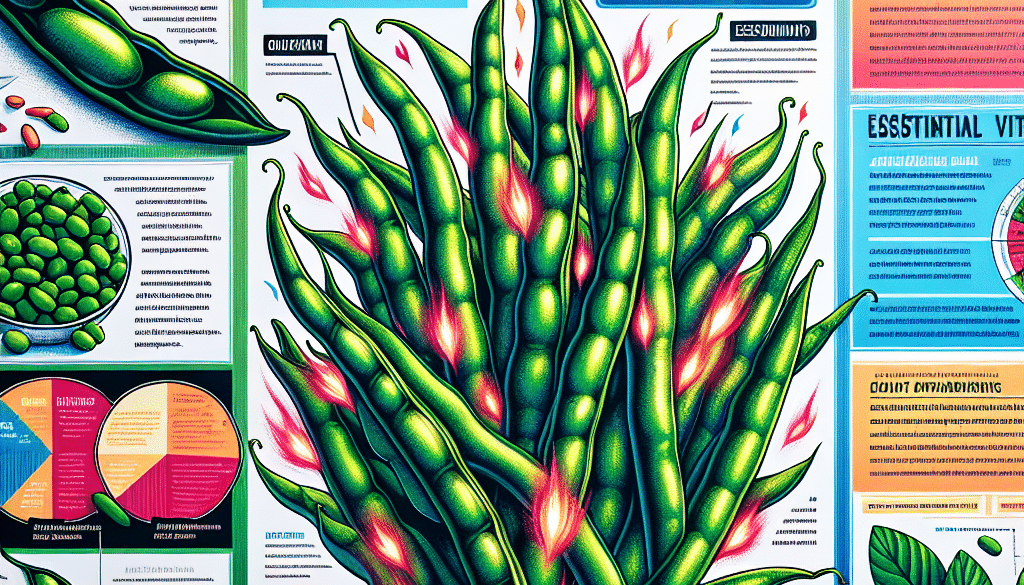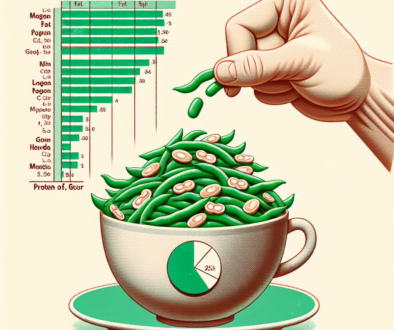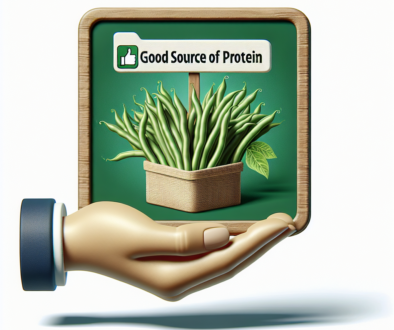Anti-inflammatory Diets: Including Green Beans
-
Table of Contents
- Anti-Inflammatory Diets: Harnessing the Power of Green Beans
- Understanding Inflammation and Its Impact on Health
- The Basics of an Anti-Inflammatory Diet
- Green Beans: A Superfood in the Anti-Inflammatory Diet
- Nutritional Profile of Green Beans
- Research on Green Beans and Inflammation
- Incorporating Green Beans into Your Diet
- Other Anti-Inflammatory Foods to Include
- Case Studies and Statistics: The Impact of Anti-Inflammatory Diets
- Challenges and Considerations
- Conclusion: Embracing Anti-Inflammatory Diets for Better Health
- Discover ETprotein’s High-Quality Protein Products
Anti-Inflammatory Diets: Harnessing the Power of Green Beans

Inflammation is a natural process that helps your body heal and defend itself from harm. However, inflammation can sometimes persist longer than necessary, leading to chronic inflammation, which is associated with various health issues, including heart disease, diabetes, cancer, and arthritis. An anti-inflammatory diet is a powerful tool for reducing chronic inflammation and promoting overall health. This article will explore the role of green beans and other foods in an anti-inflammatory diet, supported by research, examples, and statistics.
Understanding Inflammation and Its Impact on Health
Inflammation is the body’s immune response to infection, injury, or irritation. Acute inflammation is beneficial and necessary for healing, but chronic inflammation can lead to tissue damage and contribute to various diseases. The foods we eat can either contribute to or alleviate inflammation. An anti-inflammatory diet focuses on consuming foods that are rich in antioxidants, polyphenols, and other nutrients that help reduce inflammation.
The Basics of an Anti-Inflammatory Diet
An anti-inflammatory diet emphasizes the intake of whole, nutrient-dense foods while minimizing processed foods and sugars. The following are key components of an anti-inflammatory diet:
- Fruits and vegetables: Rich in antioxidants and polyphenols, these foods can reduce inflammation.
- Whole grains: High in fiber, which has been shown to reduce levels of C-reactive protein, a marker of inflammation.
- Healthy fats: Omega-3 fatty acids found in fish, flaxseeds, and walnuts can help fight inflammation.
- Lean protein: Sources like chicken, fish, and legumes can support muscle health without contributing to inflammation.
- Spices and herbs: Many, such as turmeric and ginger, have natural anti-inflammatory properties.
Green Beans: A Superfood in the Anti-Inflammatory Diet
Green beans, also known as string beans, are a powerhouse of nutrition and an excellent addition to an anti-inflammatory diet. They are low in calories yet rich in essential nutrients, including vitamins A, C, and K, as well as folate and fiber. Green beans also contain antioxidants like flavonoids and carotenoids, which help combat oxidative stress and reduce inflammation.
Nutritional Profile of Green Beans
Green beans offer a variety of nutrients that contribute to their anti-inflammatory properties:
- Vitamin C: An antioxidant that helps protect cells from damage.
- Vitamin K: Essential for blood clotting and bone health.
- Folate: Important for cell division and DNA synthesis.
- Fiber: Promotes digestive health and may lower inflammation.
Research on Green Beans and Inflammation
Studies have shown that the consumption of green beans can have a positive effect on inflammation markers. For example, a study published in the “Journal of Nutrition” found that diets high in vegetables like green beans are associated with lower levels of inflammatory markers in the blood.
Incorporating Green Beans into Your Diet
Green beans are versatile and can be included in a variety of dishes. Here are some ideas for incorporating green beans into your anti-inflammatory diet:
- Steamed or sautéed as a side dish.
- Added to salads for a crunchy texture.
- Included in stir-fries with other vegetables and lean protein.
- Blended into soups or stews.
Other Anti-Inflammatory Foods to Include
While green beans are a great addition to an anti-inflammatory diet, they are most effective when part of a diverse diet that includes other anti-inflammatory foods:
- Berries: Strawberries, blueberries, and raspberries are high in antioxidants.
- Nuts: Almonds and walnuts are good sources of healthy fats and vitamin E.
- Fatty fish: Salmon, mackerel, and sardines are rich in omega-3 fatty acids.
- Leafy greens: Spinach and kale are loaded with vitamins and minerals.
- Olive oil: A staple of the Mediterranean diet, known for its anti-inflammatory effects.
Case Studies and Statistics: The Impact of Anti-Inflammatory Diets
Several studies have highlighted the benefits of anti-inflammatory diets. For instance, the Harvard Women’s Health Study found that women who followed an anti-inflammatory diet had a 20% lower risk of heart disease and a 30% lower risk of depression compared to those who did not follow such a diet. Another study published in “The American Journal of Clinical Nutrition” reported that an anti-inflammatory diet was associated with a lower risk of all-cause mortality.
Challenges and Considerations
While the benefits of an anti-inflammatory diet are clear, there are challenges to consider:
- Accessibility: Fresh fruits and vegetables may not be available to everyone.
- Cost: Whole foods can be more expensive than processed foods.
- Adherence: Changing dietary habits can be difficult for some people.
It’s important to address these challenges by finding affordable sources of whole foods and seeking support when making dietary changes.
Conclusion: Embracing Anti-Inflammatory Diets for Better Health
An anti-inflammatory diet, rich in foods like green beans, can play a significant role in reducing chronic inflammation and promoting overall health. By incorporating a variety of anti-inflammatory foods into your diet, you can enjoy the benefits of improved well-being and potentially reduce the risk of chronic diseases.
Discover ETprotein’s High-Quality Protein Products
If you’re looking to complement your anti-inflammatory diet with high-quality protein sources, consider ETprotein’s range of organic bulk vegan protein and plant proteins. Their products, including organic rice protein, pea protein, and mung bean protein, are non-GMO, allergen-free, and have a neutral taste, making them an excellent addition to any diet.
About ETprotein:
ETprotein, a reputable protein Chinese factory manufacturer and supplier, is renowned for producing, stocking, exporting, and delivering the highest quality organic bulk vegan protein and plant proteins. They include Organic rice protein, clear rice protein, pea protein, clear pea protein, pumpkin seed protein, sunflower seed protein, mung bean protein, etc. Their offerings, characterized by a neutral taste, non-GMO, allergen-free attributes, cater to a diverse range of industries. They serve nutraceutical, pharmaceutical, cosmeceutical, veterinary, as well as food and beverage finished product distributors, traders, and manufacturers across Europe, USA, Canada, Australia, Thailand, Japan, Korea, Brazil, and Chile, among others.
ETprotein specialization includes exporting and delivering tailor-made protein powder and finished nutritional supplements. Their extensive product range covers sectors like Food and Beverage, Sports Nutrition, Weight Management, Dietary Supplements, Health and Wellness Products, and Infant Formula, ensuring comprehensive solutions to meet all your protein needs.
As a trusted company by leading global food and beverage brands and Fortune 500 companies, ETprotein reinforces China’s reputation in the global arena. For more information or to sample their products, please contact them and email sales(at)ETprotein.com today.












